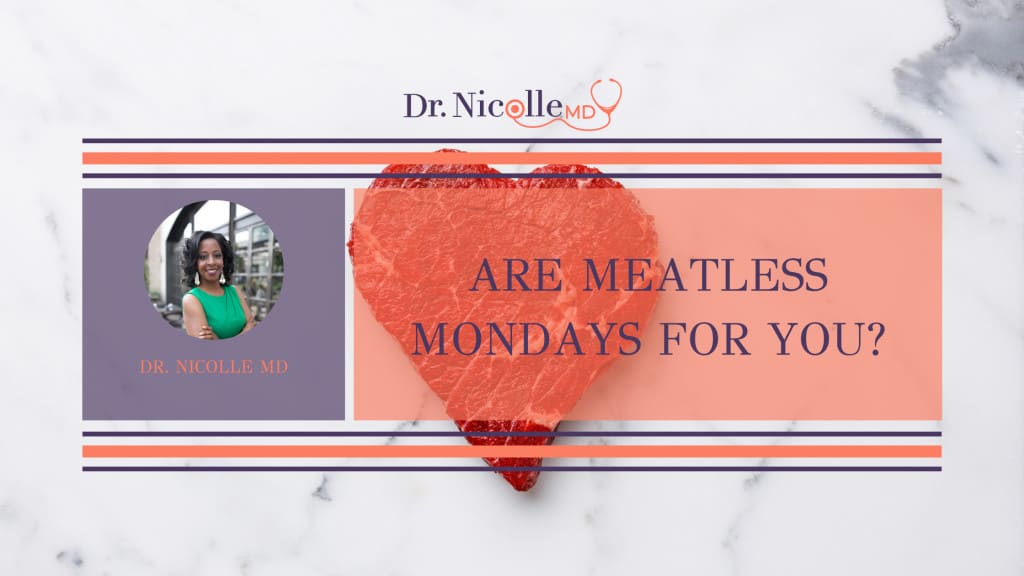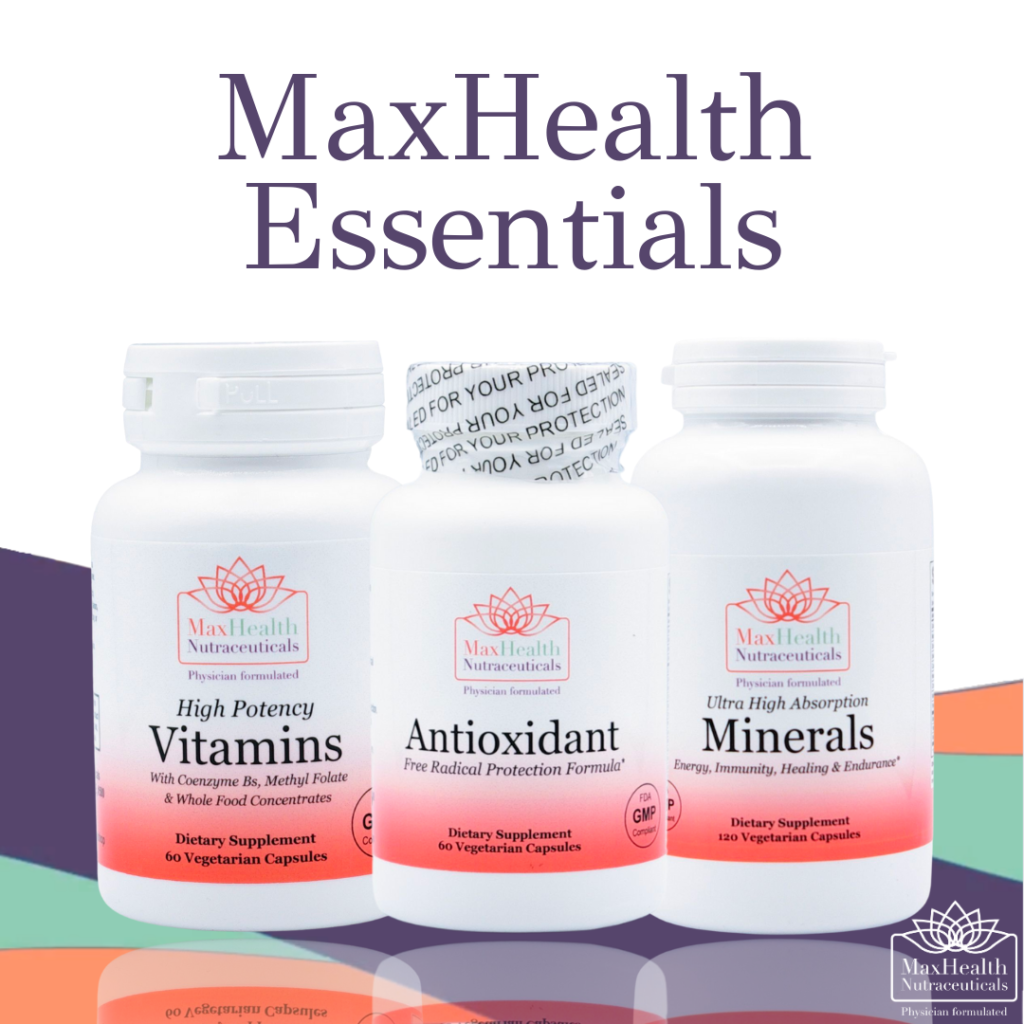

It’s Wellness Wednesdays! We’ll talk about meatless Mondays. You probably know that a plant-based diet offers a lot of benefits for your health, but it can be hard to give up hamburgers and bacon. In fact, an estimated 4 out of 5 vegetarians eventually go back to eating meat.
There’s also evidence that making the transition gradually increases the chances of sticking with a meatless diet.
Picking one day a week to eat vegetarian is an excellent place to start, and that’s the thinking behind the global movement for Meatless Mondays.
The campaign has a longer history than you might think. During World War I, Meatless Mondays were advertised as a way to support the troops. In 2003, the idea was revived by public health experts to encourage positive changes in the way we eat.
Begin each week with a meat-free day or design a schedule that works for your family.
As you plan your new menus, take a look at these ideas.
Benefits of a Plant-Based Diet:
1. Reduce your health risks.
Eating more fruits and vegetables can reduce your risk for diabetes, heart attacks, and strokes. Lifestyle choices, like your diet, play a major role in your wellbeing.
2. Lose weight.
Being a vegetarian won’t make you thin if you’re living on pizza and potato chips. On the other hand, vegetarians tend to weigh less, have lower body fat, and live longer than meat eaters.
3. Consume more fiber.
Increased fiber is one reason why most vegetarians slim down. Fiber also reduces blood pressure and inflammation.
4. Spend less on food.
You may also wind up with more money in the bank. Lentils and tofu cost less than most meat products.

Practicing Meatless Mondays at Home:
1. Learn new recipes.
Make vegetarian cooking fun by experimenting with new dishes. See how many different ways you can prepare chili or serve something elegant like a savory vegetable tart.
2. Make substitutions.
Enjoy your old favorites without the meat. Use spinach in your lasagna and chickpeas for fajitas.
3. Stock your kitchen.
Simplify mealtime by shopping in advance for vegetarian staples. Look for beans, nuts, and nutritional yeast.
4. Do your research.
Visit your local library or bookstore to find books about vegetarian and vegan lifestyles.
5. Reach out.
Learn from others who are trying to go meat-free. Browse through the Meatless Monday website or talk with friends and family who have made the transition.
Practicing Meatless Mondays away from Home:
1. Visit ethnic restaurants.
You’ll find many delicious vegetarian options at Indian and Middle Eastern restaurants. Keep a list handy for when it’s your turn to choose where to go.
2. Call ahead.
If you think the menu may be limited, contact a restaurant ahead of time. Even a steak house may be able to put together an entree you’ll love.
3. Order side dishes.
Remember that you can create a balanced meal without ordering a main course. Dine on hummus, roasted vegetables, and bread.
4. Eat beforehand.
What if you know you’re going to be stuck somewhere where the only meat-free items are the hamburger buns? Fill up before you leave home so you can have fun with your friends without being distracted by hunger pangs.
5. Leave feedback.
Expand meatless choices for yourself and other diners. Let restaurants know about your experience and how much you’d appreciate seeing more meatless options on the menu.
Meatless Mondays could be the start of a whole new way of eating for you and your family. Maybe you’ll decide to become vegetarian for life or just cut back on your consumption of processed meat.
Either way, moving towards a plant-based diet could enhance your health, slash your grocery bills, and reduce your carbon footprint.
I would love to give you a free resource sheet to support your overall wellness. Click the button below to receive your gift.
I really wanted to talk about this topic today because your natural health and wellness is important. You can adopt healthy lifestyle practices that improve your health, your environment, and enrich your life, which can in turn improve the lives of those close to you. You have the power to break the cycle of poor health, including chronic disease, so that you can leave a legacy of health to your loved ones.
I use functional medicine and lifestyle medicine as the first line of treatment, before medications, to treat lifestyle-related chronic diseases. Lifestyle-related chronic diseases include diabetes, hypertension, obesity, and some cancers, just to name a few. Lifestyle practices, such as eating a whole-food plant-based diet and regular physical activity, can help you lose weight, reverse some chronic diseases (if you suffer from them), and can even help you with detoxification. In certain cases, these approaches may even outperform pharmaceutical therapy.
But I always tell my patients that conventional medications may be appropriate at this time to prevent catastrophic illness, but over time, you can work to make the necessary lifestyle changes to possibly reduce and/or eliminate medications. Please remember to always consult your physician for your particular needs and circumstances prior to making any decisions whatsoever.
Is Dietary Supplementation Right For You?
For some people, vitamin and mineral supplements offer important health benefits. Supplements are designed to fight deficiencies found in our diet and complement the food we eat regularly. Supplements are basically “helping hands” to our daily food.
If you suspect that you aren’t getting the nutrients you need, consider shifting your focus from supplements to eating better.
But it is very important to note that we are not eating the same foods we ate years ago because the soils have been depleted of critical nutrients through current industrial farming practices. And because the soil is not as good as it used to be, the food supply (grown from the depleted soil) is not as good as it used to be. For example, you are not getting the same levels of magnesium as you would have gotten 30 or even 50 years ago.
Second, much of the food has been genetically altered, which can impact the inherent and unique nutritional composition that each food possess. For example, ancient einkorn wheat has less gluten, more protein, more Vitamin A, and more beta carotene, than modern genetically modified wheat.
Third, the toxic load in the environment today is much higher than 100 years ago. We can see this with global warming, toxic landfills, polluted oceans and waterways, etc. Toxicity levels interfere with nutrient assimilation and absorption not just into the foods, but into our bodies as well.
So… if you are unable to eat better, the supplements in my MaxHealth Essentials Bundle may provide the extra boost you need.
These are my favorite Wellness and Immune-Boosting Supplements to use! This MaxHealth Essentials Bundle will ensure you have the intake of the important vitamins, minerals, and antioxidants to decrease inflammation and boost your innate wellness day and night. Taken together, it’s a solid plan for increasing your body’s natural resiliency.
For best results make sure you use the supplements with dietary changes including a whole food plant-based diet, regular exercise (at least 2-3x per week), regular sleep (8 hours per night), and intermittent fasting (at least 1-3x per week).
Weight Monitoring
Since weight management is very important in combatting chronic diseases, I recommend that you be mindful of your weight and its fluctuations, and that you monitor your weight AT LEAST on a weekly basis. I recommend a scale that includes a body composition monitor (*this scale cannot be used with a pacemaker or other implanted devices).
Physical Activity
Physical activity (or exercise) can improve your health and reduce the risk of developing several chronic diseases like high blood pressure, type 2 diabetes, and cancer, just to name a few. Physical activity can improve your mood, boost your immune system, help you maintain a healthy weight, and is a great way to detox your body!
I often recommend yoga and resistance training for physical activity, but as you are aware, there are plenty of forms of “movement” that you can do! But for the basics, especially if you’re just getting started, yoga and resistance training are where I would start.
Yoga
Yoga can be a great way to improve your strength and flexibility, manage your stress, improve your heart health, and lose weight! I recommend using a grounded yoga mat to connect yourself with the earth and reduce inflammation.
Resistance Training
Resistance training is the mainstay for overall health. It not only has beneficial effects on reducing body fat, it also increases muscle size and strength. Check out some basic dumbbells/free weights that I recommend to everyone.
Another alternative for dumbbells/free weights are resistance bands. They are great for physical therapy, yoga, strength training, and excellent for traveling.
Remember, living a healthy lifestyle including eating a whole foods plant-based diet, regular physical activity, and reducing stress are the best ways to maintain a healthy weight. Let me know what you think in the comment section below.
Dr. Nicolle Martin
Some of the links in this article are "affiliate links", a link with a special tracking code. This means if you click on an affiliate link and purchase the item, we will receive an affiliate commission.
The price of the item is the same whether it is an affiliate link or not. Regardless, we only recommend products or services we believe will add value to our readers.
By using the affiliate links, you are helping support our Website, and we genuinely appreciate your support.
Last updated on January 3rd, 2022 at 09:38 am

Minimize Medications. Maximize Health.
Are you super busy but need to take control of your health? Are you tired of being tired? Subscribe to my “Minimize Medications, Maximize Health Blog” and I’ll give you 7 Tips to Get Healthy in No Time absolutely FREE.






